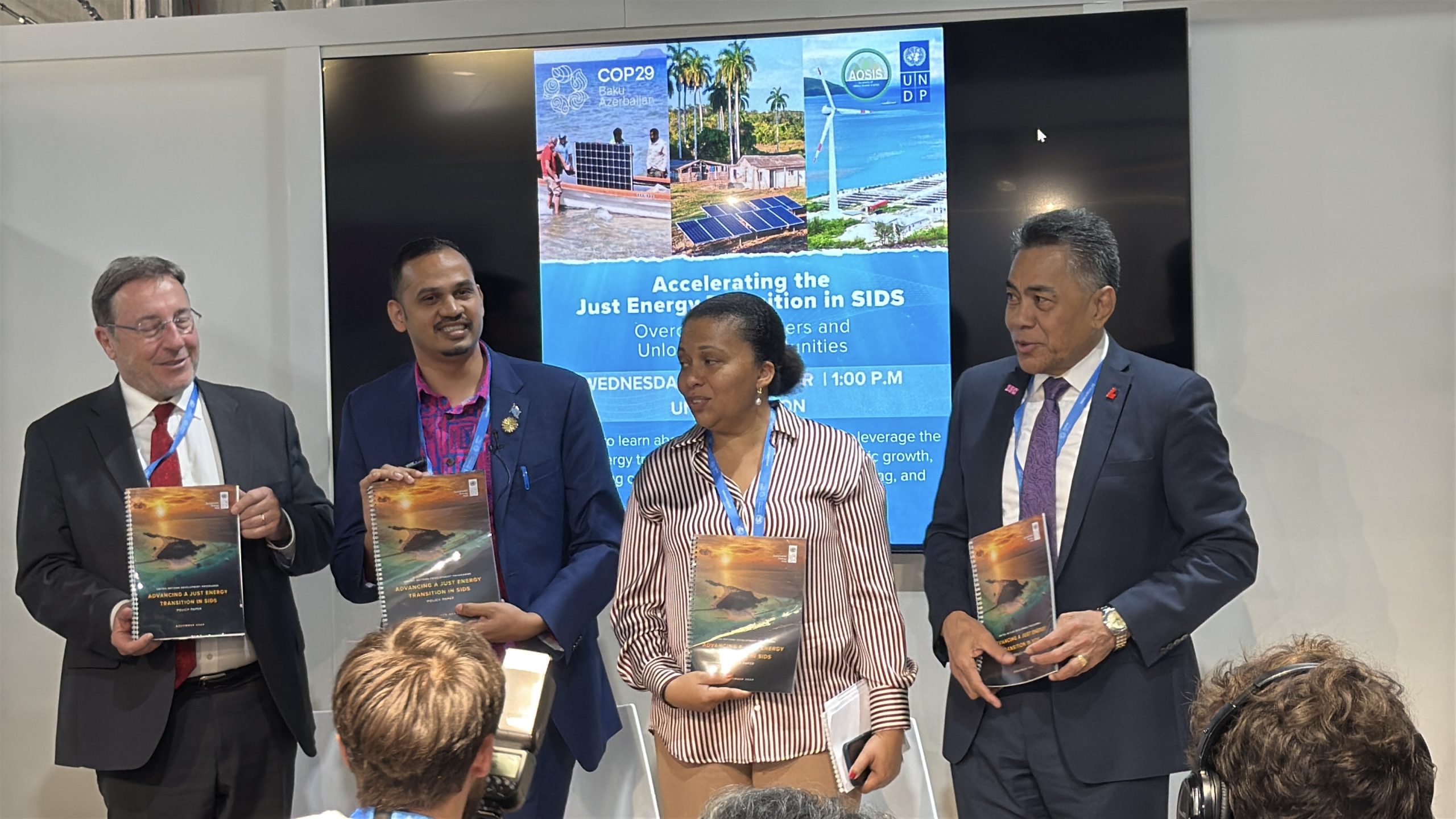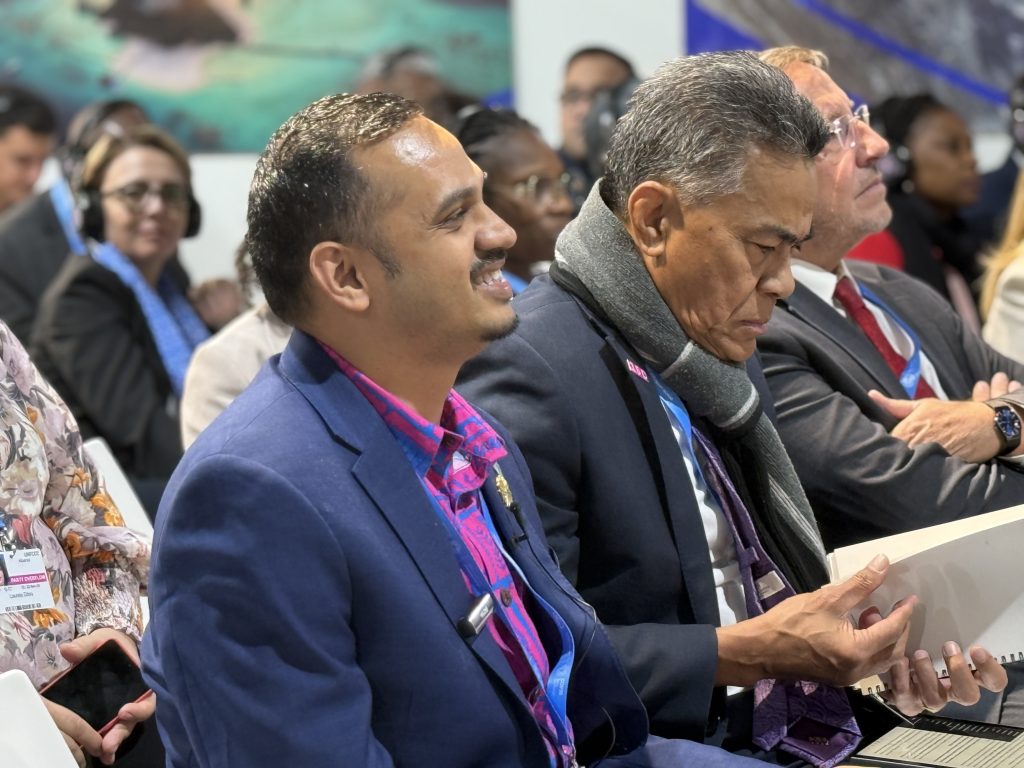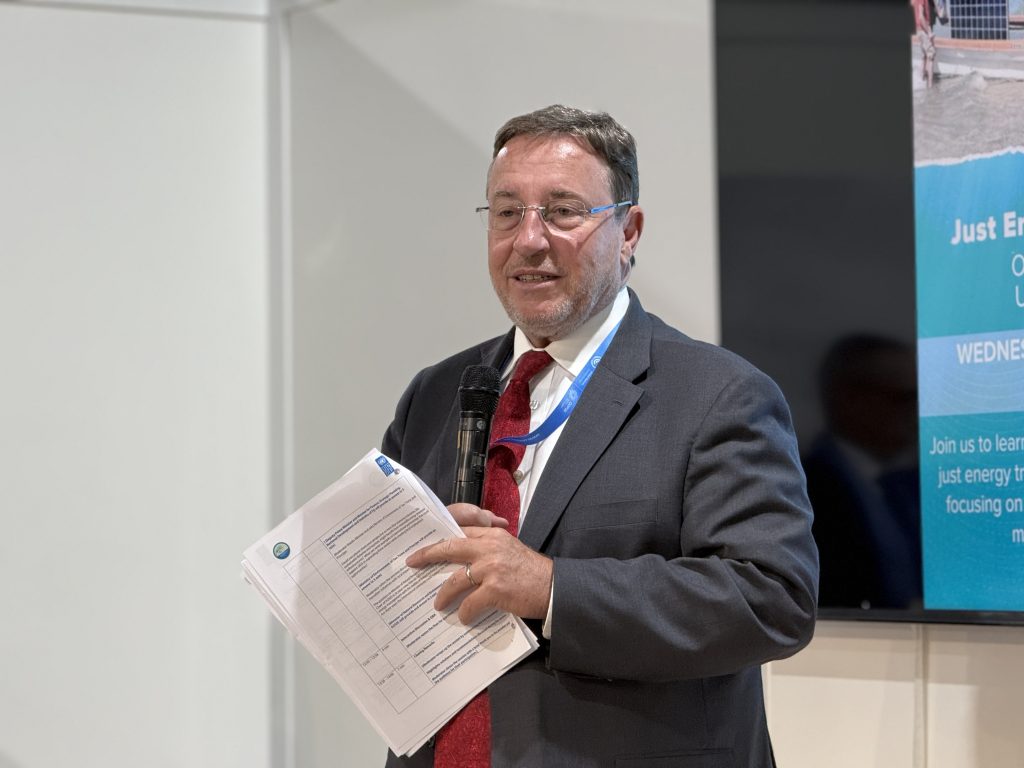
Permanent Secretary for Environment and Climate Change and Fiji’s Chief Negotiator at COP29 Dr Sivendra Michael said there are huge opportunities in solar and hydropower investments in Fiji, however the country’s national circumstances continue to erode the potential to accelerate the uptake of these clean energy technologies at scale.
He highlighted this at a round-table discussion organised by UNDP on Accelerating the Just Energy Transition in Small Island Developing States at COP29 in Baku, Azerbaijan yesterday.
“The aggregate emissions from all Pacific Island countries accounts for approximately 0.03 percent of global emissions. Despite this, our region continues to strive to lead by example through the setting of ambitious and 1.5°Caligned Nationally Determined Contributions (NDCs), and our ongoing efforts to actively reduce our emisisons by investing in renewable energy,” he said
“Without strong NDCs set by the world’s largest economies, and without the clear market signal needed to accelerate technology transfer, and deep cuts in carbon dioxide emissions and non-carbon dioxide emisisons, the potential for our NDCs to deliver sustainable development will be undercut.”
He added that achieving net zero emissions and preventing climate chaos requires long-term planning, not ad-hoc and short-term goals.

“On the policy front, governments can begin shifting investments and mindsets through the incentives, capacity building opportunities, and new partnerships needed to lock in progress against long-term low-carbon growth plans and commitments.”
Fiji’s national policies and strategies are strongly focused on achieving a net zero target by year 2050 and this conditional target is enshrined in law through the Climate Change Act.
He said Fiji’s current NDC also aims to achieve 100% renewable grid electricity generation by 2030, but to do so the country need the resources and partnerships required to strategically manage current reliance on fossil fuels
Fiji’s NDC Implementation Roadmap 2017 estimates that US$ 2.97 billion in investment into our energy sector is required from 2017–2030 to reduce our energy sector emissions by 30%.
Fiji has published its NDC Investment Plan entails 20 primary mitigation program pipelines for the transport (land, maritime, and aviation) and energy efficiency sectors.
The consolidated financing required for this pipeline over the 2022-2030 period is estimated at around 2bn USD.
He reiterated that Fiji and countries in the Pacific will not achieve anything if the major emitters do not take action.
“We will not be able to deliver a just transition if the conditions for transition are withheld. Whichever way you slice it, global decarbonization requires a global approach. And while what constitutes a just transition varies between countries and contexts, it is clear that there will be no potential for either justice or transition if all Parties fail to truly commit to delivering the requisite action needed to keep global average temperature rise below 1.5 degrees.”
The side event organised by AOSIS and UNDP highlighted the opportunities that the just energy transition offers for Small Island Developing States (SIDS).
UNDP Administrator Achim Steiner said clean, affordable, and reliable renewable energy systems have become both a necessity for resilience and an opportunity for growth by transforming economies and catalysing new development sectors.

Steiner highlighted the challenges in energy transition and leveraging sectors like the tourism industry who are often significant capital investors and already have platforms where renewable energy can succeed , recycling of water or charging stations for electric vehicles.
“It will be very difficult for SIDS on their own to simply switch over to electric mobility because you need a certain infrastructure for this to work.”
This story was produced as part of the 2024 Climate Change Media Partnership, a journalism fellowship organized by Internews’ Earth Journalism Network and the Stanley Center for Peace and Security.